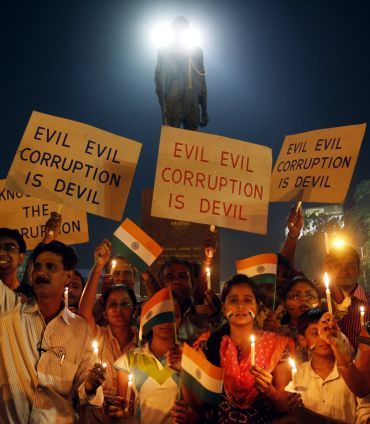
Negotiations about the Lokpal Bill have turned out to be a damp squib after representatives of the government and the civil society failed to reach a consensus.
In an interview with rediff.com's Vicky Nanjappa, Karnataka Lokayukta Santosh Hegde, one of the members of the Joint Drafting Committee of the Lokpal Bill, sets the record straight on why the talks broke down.
What exactly went wrong? There was a lot of promise about a good Lokpal Bill.
Today when I look back, I feel that the government never wanted this bill to be what it should be. The initial few meetings started off on a cordial note and we all thought that they were serious about implementing a strong bill. Now I realise they always had a pre-conceived notion about what the bill was going to be and how they wanted it to be.
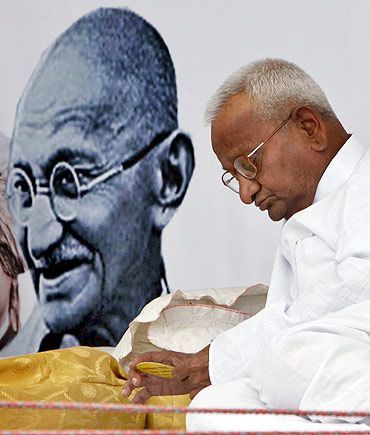
The media is abuzz with speculations that there were differences of opinion within the government panel and among the civil activists. Is that true?
Difference of opinion within the government? That sounds like a joke. They were always united and prepared at all times. I would have to say that our panel had an open mind. There were differences when we used to meet before the actual meeting, but that is democratic in nature. Give me one instance when any of our panel members has spoken out against another. We have never done that and this proves that we were united.
Please take us through the meetings between representatives of the government and the civil society.
We went into all these meetings with an open mind. All of us were very optimistic about this as we all wanted a good bill. Considering that this was a meeting, we did think that we could also put forth our views and argue if we found something was wrong. Everything was cordial at first but as the meetings progressed, they began to talk tough. This came as quite a surprise because the same people went from being polite to talking in a very tough manner.
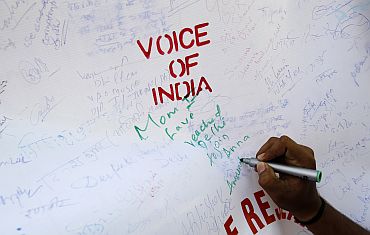
All of you are very experienced people. How did you let the government bully you?
As I said, they were polite at first. They spoke about procedure also. Yet, in the meetings when we wanted to discuss contentious issues, we were given an impression that it would be done during the later meetings.
After a couple of meetings, we realised that there was no way in which we could argue with them because they never had an open mind. It was at this point of time that we realised that they were never interested in a Lokpal Bill.
The government always gave the people the impression that the two committees were in agreement.
Yes, that is correct. They did say that 50 per cent of the issues were agreed upon. But these are issues that hardly matter. There are other contentious issues which all of you know about that needed to find a mention in the final bill. This is when the disagreement began.

You said earlier they had a pre-conceived notion. What do you mean by that?
The government said that 50 per cent of the issues were agreed upon. The remaining issues were the important aspects of the bill that they just refused to discuss. You may not believe it, but we are now convinced that the draft of the bill was ready well before the meetings started.
We realised this when the draft was given to us. Some issues that were never discussed in the meetings were part of that draft. Now this raises certain doubts. How could issues that were never discussed form part of the draft? Don't you think when there is a discussion between two parties, both of them have the right to know which issues need to be included?
We had suggested that the prime minister, the leader of opposition, two Supreme Court judges and the comptroller and auditor general be part of the selection committee for the Lokpal. At that point of time, they said that we must include the chairpersons of both Houses as members of the selection committee. We accepted it.
In the draft, we saw that they had introduced only politicians and bureaucrats into this panel apart from two other judges. Now this was not something that was discussed. How did this find a mention in the draft?
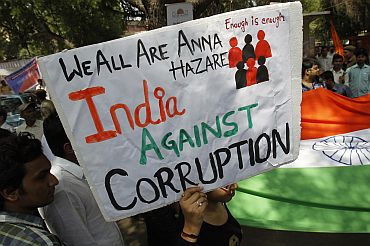
Other than the issue of bringing the PM under Lokpal's purview, what was the biggest point of difference between the government and you?
A provision states that an accused should be given an opportunity before a chargesheet is filed. Now that defies criminal jurisprudence in totality. While the charges are being framed, an accused has the right to approach the court and seek quashing of the charges against him. Why should an investigating officer give that right to an accused?
Are you sure that your team was united at all times?
Yes, I can vouch for that. There were never any issues between us. We had differences during our meetings, but that is normal. When we appeared before the government's panel, we had just one common view. In the private meetings, we have had our differences, but those were democratic differences of opinion.
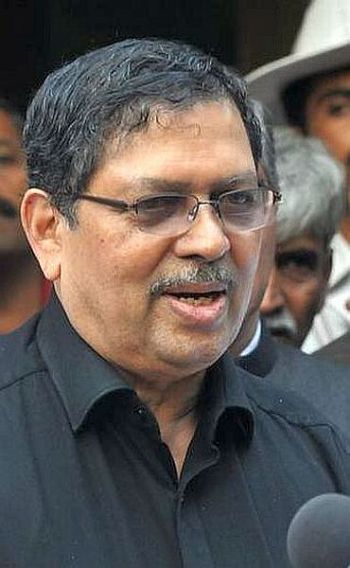
There have been reports about you having a problem with Anna Hazare.
This government can go to any extent to create such reports. Yes, I had written a letter to Anna Hazare. All I said to him was instead of going on a hunger strike, it would be better if you traveled to different parts of the country (to spread the message).
Why make the people come to the place where you are fasting; instead I had urged him to go to the people. Now would you call this a difference of opinion or a problem? This is just a suggestion and the two of us have no problems.
Were the government's representatives united?
They can never have a difference of opinion because their command comes from one place. They can never go against that command and hence everything is pretty much decided well in advance.
When do you plan to give us recordings of the meetings?
I have asked for it. Those tapes have to come out in order to expose the government. We have asked for it and the finance minister has said that he will decide about it. We are on the job.